Seasons ripe for change
New solar term will see rising water and temperatures amid emphasis on staying cool, Xu Lin reports.

The second summer solar term, xiaoman (a little full) or Grain Buds, falls on May 21 this year.
The traditional Chinese lunar calendar divides the year into 24 solar terms. As the eighth term of the year, it's a transition period when wheat is about to ripen, with subtle changes in nature, such as rising water levels and temperatures.
Xiaoman has some typical phenomena, according to ancient Chinese classics.
It's the time when sow thistle, a common edible wild herb, grows in abundance across the country. Chinese used to eat such wild vegetables due to poor economic conditions in previous times.
According to traditional Chinese medicine theories, eating bitter herbs can prevent inflammation and reduce the fire element, which is at its highest level in summer.
Chinese also believe that eating something bitter is a way to call to mind one's past sufferings and think over the source of present happiness.
In the meantime, delicate whitlow-grasses that prefer shadowy places will start to wither and die in the direct heat of the sunshine.
Guo Wenbin, an award-winning author and a scholar of traditional culture, wrote in his novel The Lunar Calendar that in his hometown in Northwest China's Ningxia Hui autonomous region, locals went to the Dragon King's Temple to kiss the ears of wheat, and recite ragged verses to pray to the Dragon King that the wheat successfully ripens.
Guo believes it's one of the most scented solar terms, as the fragrance that spreads across the wheat field is intoxicating.
"The arrival of xiaoman means the wheat-reaping time is nigh, and we will soon be able to sample the delicious cooked wheat," he says.
"The ancient Chinese sang in praise of xiaoman."
According to him, as it's easy to lose one's temper in midsummer, the ancient Chinese believe it's essential to nurture calmness. It's helpful to listen to cheerful music, including those ancient classics passed on from generation to generation.
Dampness is a physiological and pathologic concept in traditional Chinese medicine, referring to an imbalance arising from having too much moisture in one's body.
The ancient Chinese believed it was important to manage the excess dampness in one's body around the period of xiaoman, for example, eating the seed of job's tears (millet), polished round-grained rice and Poria cocos, a type of mushroom.
As it's also the time when people perspire heavily, so it's a tradition to eat "the three freshness"-cucumber, garlic sprout and cherry, as a way to rehydrate, besides, of course, drinking water.
At the typical "men farming and women weaving" society in China, the raw material for weaving in the north is cotton and in the south is silk.
In the national ceremonies that date back to the Western Zhou Dynasty (C.11th century-771 BC), the emperor performs a sacrificial rite and symbolically pushes a plow in the field three times, to pray for a good harvest.
The empress performs a sacrificial ceremony to the silkworm deity, picks up mulberry leaves and feeds silkworms, as a role model for all female weavers in the country.
Xiaoman is the best time to cultivate silkworms, cook cocoons and prepare the spinning wheels for reeling silk. Silkworms are delicate and need to be taken good care of, and the mulberry leaves should be fresh and strictly selected.
Silkworm rearing is an essential means of livelihood for those in regions south of the Yangtze River, especially in Jiangsu and Zhejiang provinces. The ancient Chinese believed that xiaoman is the birthday of the silkworm deity and would offer sacrifices to pray for a boom season for cocoons.
Silkworms are rich in symbolism in ancient Chinese literature.
People can find out about rural life from poems on silkworm rearing. As it's a hard and time-consuming process for silkworms to spin silk and make cocoons, poets like to use them as a metaphor for enduring romantic love. Silkworms also represent the fleeting of time, because the cocoon season means the end of spring.
Famous Chinese poets such as Li Bai and Du Fu from the Tang Dynasty (618-907), and Su Shi from the Song Dynasty (960-1279) all wrote poems that vividly described the silkworm rearing activities at that time, such as silk reeling.
Today, it's popular for Chinese children to raise white and plum silkworms in a paper box, covered with green fresh mulberry leaves.
For them, rearing silkworms is not a way to make a living, but to observe the magic of nature. It's exciting to carefully watch the silkworms grow bigger and bigger after shedding their skin several times, and finally become white oval cocoons.
In southern China, the old custom of xiaoman is to "move three vehicles", referring to waterwheels, oil mills, and silk reeling machines, marking the busy farming season when everyone is working hard.
Farmers irrigate the fields and spin wheels for silk fibers. They pick up the mature vegetable seeds of canola flowers and send them to the mill for cooking oil. Year after year, the Chinese farmers and weavers have been working like this to maintain their family.
"Xiaoman is the most philosophical solar term, emphasizing the importance of the traditional Chinese value of modesty and humility. There is only xiaoman, or 'small full', but no daman, or 'big full' in the 24 solar terms," Guo says.
According to Taoism, the moon begins to wane the moment it becomes full; the water starts to overflow when it becomes full. It means that things will develop in the opposite direction when they become extreme.
Ancient Chinese philosophy believes that, among all the virtues, only modesty can bring people good fortune. An old Chinese saying goes that the modest receive benefit, while the conceited reap failure.
"It's also a note of caution from our ancestors that we should guard against arrogance and rashness," he says.
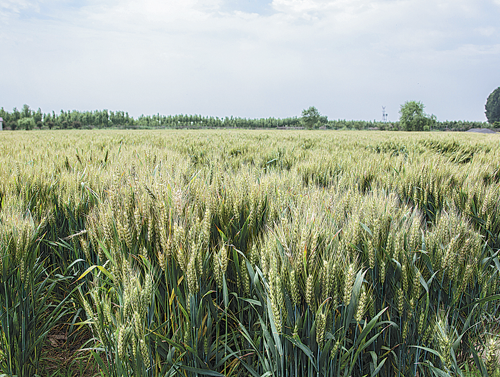
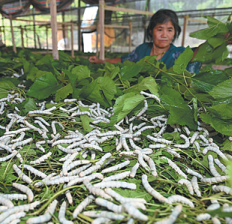
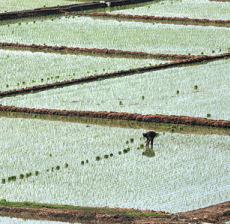

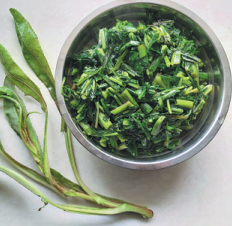

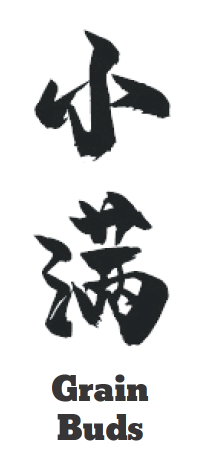
Today's Top News
- Responsible major-country diplomacy conducive to world peace and stability
- Exchanges with Taiwan parties to strengthen
- Road map for 'Export to China' intl communication campaign unveiled
- Xi meets with special envoy from Vietnam
- Xi says ready to work with Trump to steer giant ship of China-US ties steadily forward
- Xi talks with Trump over phone






























